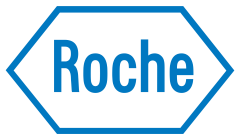If approved, Tecentriq will be the first and only cancer immunotherapy available for certain people with early-stage NSCLC in Europe

Roche announced that the European Medicines Agency’s (EMA) Committee for Medicinal Products for Human Use (CHMP) has recommended the approval of Tecentriq (atezolizumab) as an adjuvant treatment, following complete resection and platinum-based chemotherapy, for adults with non-small cell lung cancer (NSCLC) with a high risk of recurrence whose tumours express PD-L1≥50% and who do not have EGFR mutant or ALK-positive NSCLC. A final decision regarding the approval of Tecentriq in this setting is expected from the European Commission in the near future.
“The goal of treating early-stage cancers is to provide the best chance for a cure,” said Levi Garraway, M.D., Ph.D., Roche’s Chief Medical Officer and Head of Global Product Development. “Today’s announcement brings hope that, after a decade of limited treatment advances, many people in Europe with early non-small cell lung cancer will soon have a new treatment option to reduce the risk of their disease returning.”
“For approximately half of all people diagnosed with early-stage lung cancer, their disease will return at some point after surgery, and in some cases they will then be living with incurable metastatic cancer,” said Anne-Marie Baird, President of Lung Cancer Europe (LuCE). “Given what we are now seeing in the early-stage space, it is vital that biomarker testing is not only confined to Stage IV disease. Testing for biomarkers at diagnosis will help to identify people who may benefit from new adjuvant treatments to help reduce disease recurrence.”
The recommendation from the CHMP is based on results from the DFS interim analysis of the Phase III IMpower010 study. The results showed treatment with Tecentriq, following complete resection and platinum-based chemotherapy, reduced the risk of disease recurrence or death (DFS) by 57% (unstratified hazard ratio [HR]=0.43, 95% CI:0.26-0.71) in people with Stage II-IIIA NSCLC (UICC/AJCC 7th edition) whose tumours express PD-L1≥50% and who do not have EGFR mutant or ALK-positive NSCLC, compared with best supportive care (BSC).8 A DFS benefit was consistently seen across most subgroups including histology or stage of disease with adjuvant Tecentriq, compared with BSC. Overall survival (OS) data for patients with PD-L1 high resectable Stage II-IIIA NSCLC, and who do not have EGFR mutant or ALK-positive disease are immature and were not formally tested at the DFS interim analysis, however, a trend towards OS improvement with Tecentriq was seen, with a HR of 0.36 (95% CI: 0.17-0.75). Follow-up will continue with planned analyses of more mature OS data later this year. Safety data for Tecentriq were consistent with its known safety profile and no new safety signals were identified.8
If approved, Tecentriq will be the first cancer immunotherapy available in Europe as an adjuvant treatment, following complete resection and platinum-based chemotherapy, for adults with a high risk of recurrence whose tumours express PD-L1≥50% and who do not have EGFR mutant or ALK-positive NSCLC.

Subscribe To Our Newsletter & Stay Updated